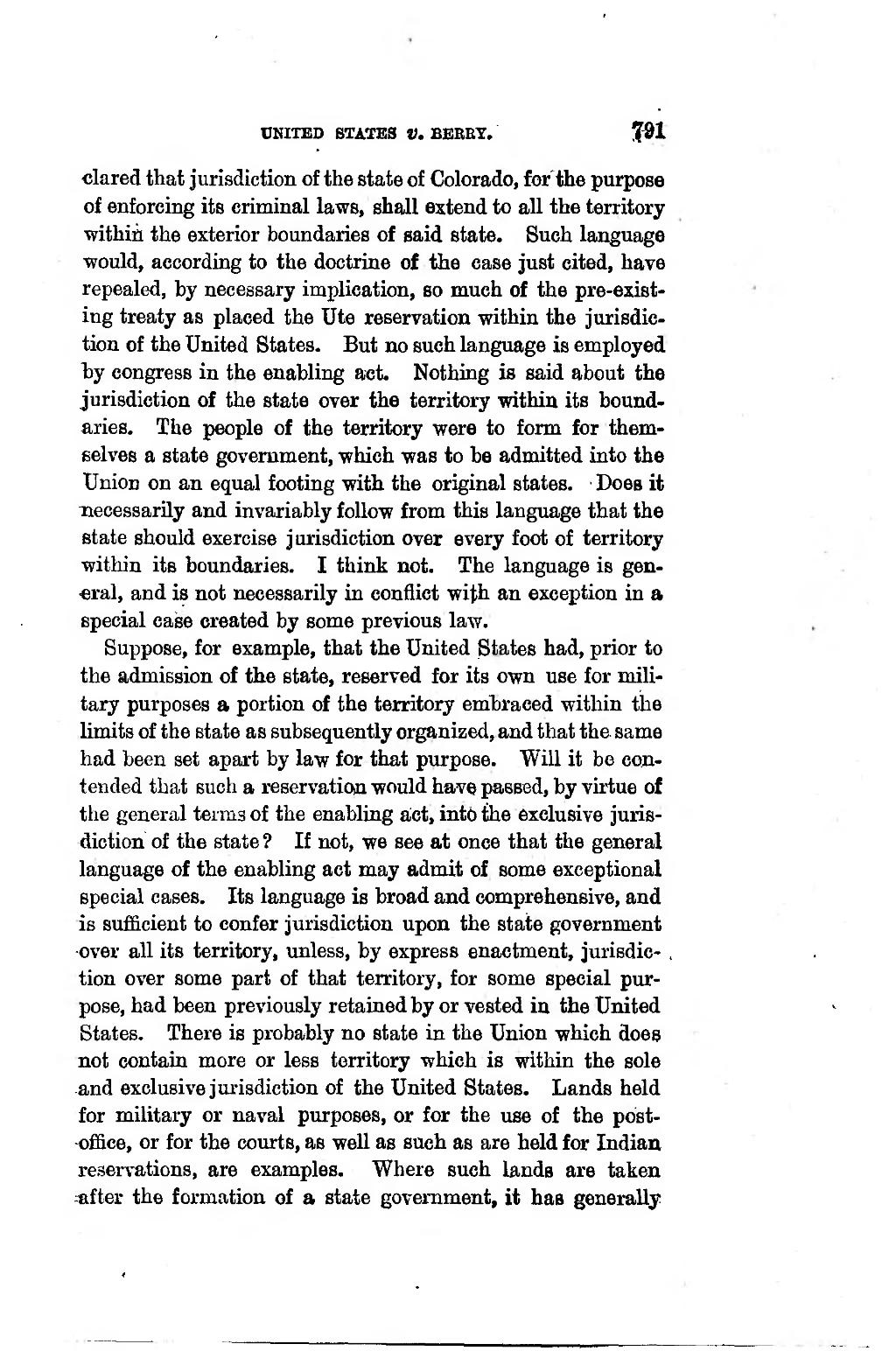UNITED STATES V. BBBET. 791 �clared that jurisdiction of the state of Colorado, for the purpose of enforcing its criminal laws, shall extend to ail the territory ■witliifl the exterior boundaries of said state. Such language would, according to the doctrine of the case just cited, have repealed, by necessary implication, so much of the pre-exist- ing treaty as placed the Ute reservation within the jurisdic- tion of the United States. But no such language is employed "by congress in the enabling act. Nothing is said about the jurisdiction of the state over the territory within its bound- aries. The people of the territory were to form for them- selves a state government, which was to be admitted into the Union on an equal footing with the original states. Does it Tiecessarily and invariably follow from this language that the state should exercise j arisdiction over every foot of territory ■within its boundaries. I think not. The language is gen- «ral, and is not necessarily in conflict wi^h au exception in a special case created by some previous law. �Suppose, for example, that the United States had, prior to the admission of the state, reserved for its own use for mili- tary purposes a portion of the territory emlaraced within the limita of the state as subsequently organized, and that the same had been set apart by law for that purpose. Will it bo con- tended that such a reservation would havepassed, by virtue of the general terma of the enabling a,ct, intO the exclusive juris- diction of the state ? If not, we see at once that the general language of the enabling act may admit of some exceptional special cases. Its language is broad and comprehensive, and is suf&cient to confer jurisdiction upon the state government over ail its territory, unless, by express enactment, jurisdic- , tion over some part of that territory, for some special pur- pose, had been previously retainedby or vested in the United States. There is probably no state in the Union which doeç not contain more or less territory which is within the sole and exclusive jui'isdiction of the United States. Lands held for military or naval purposes, or for the use of the post- office, or for the courts, as well as such as are held for Indian reservations, are examples. Where such lands are taken after the formation of a state government, it has generally ����
